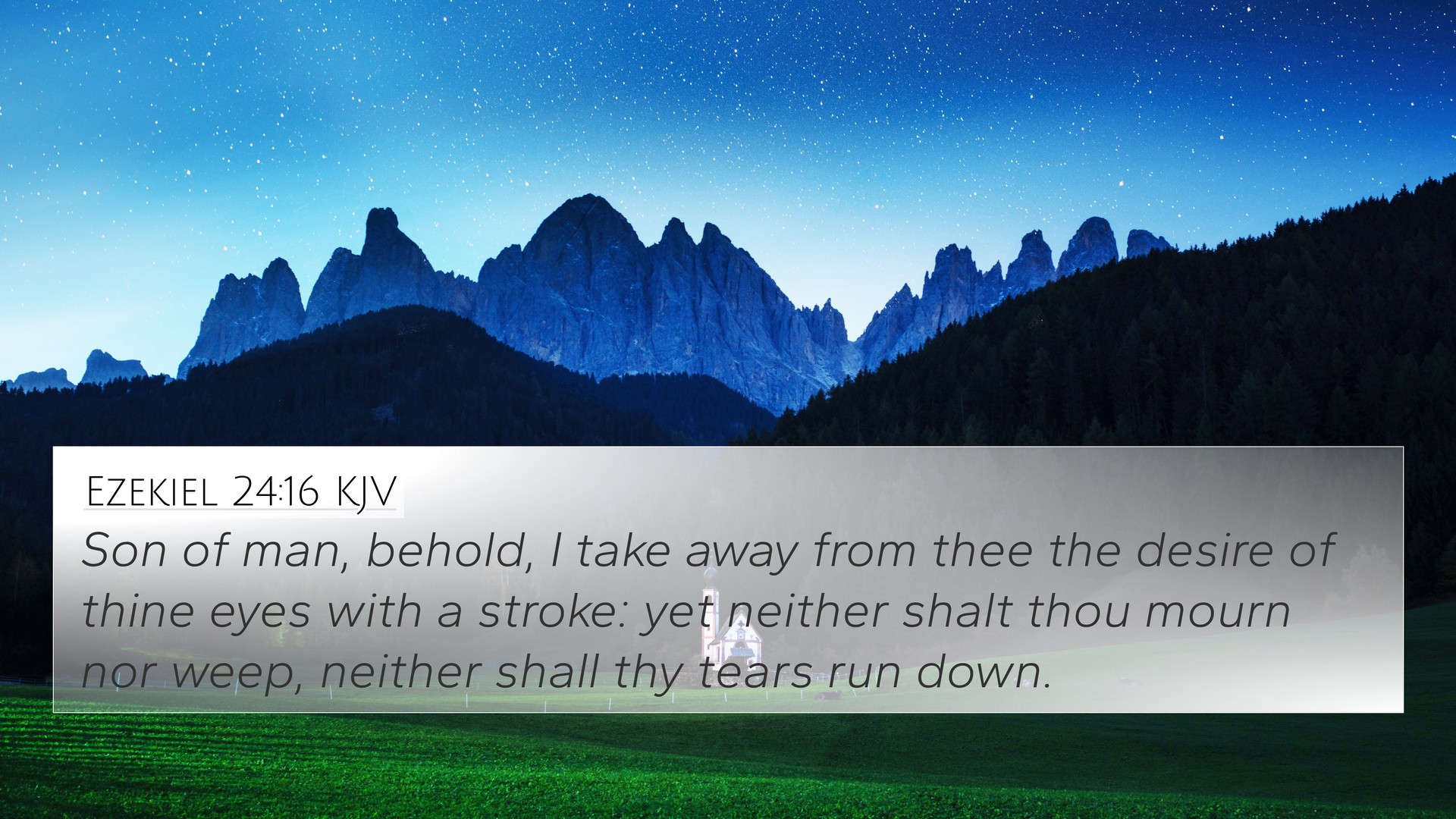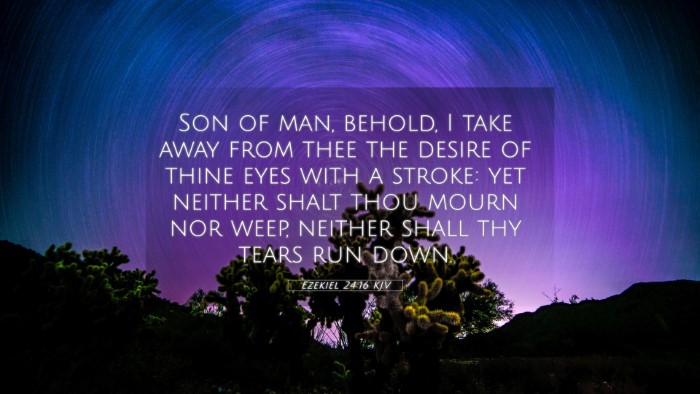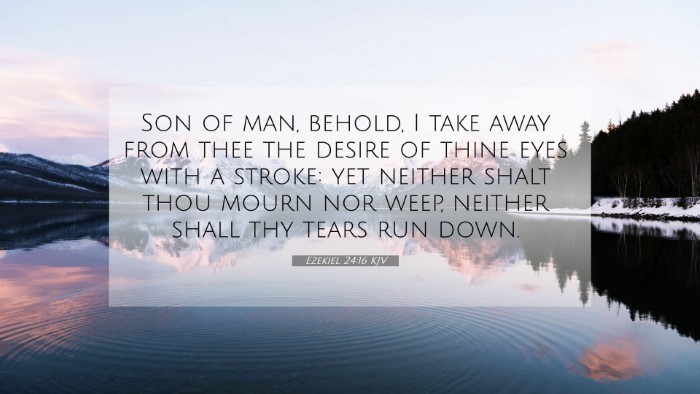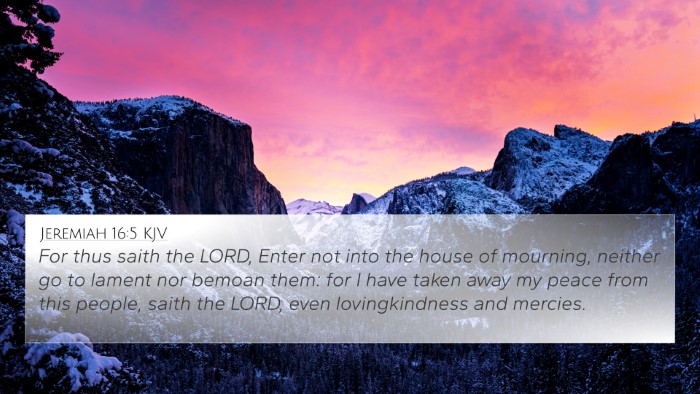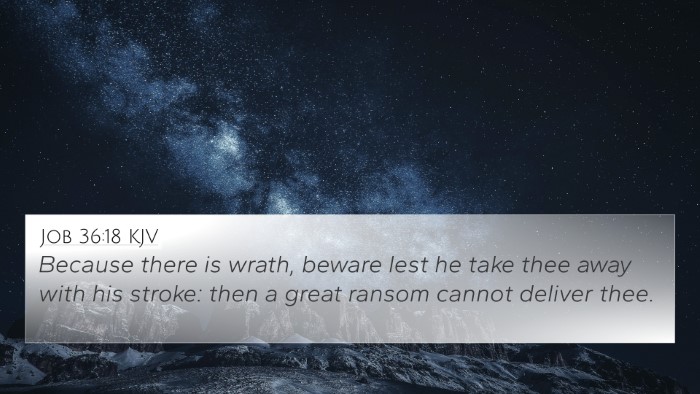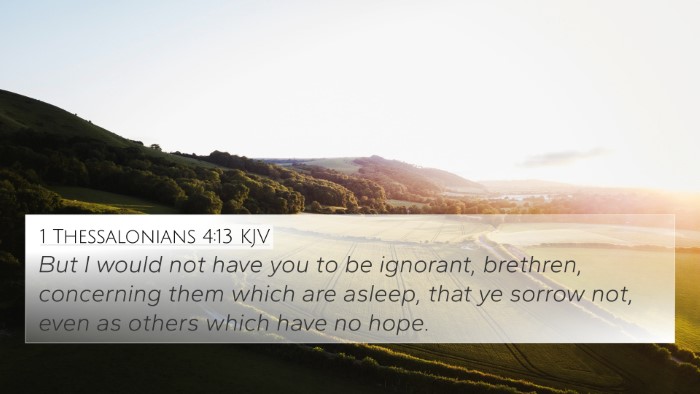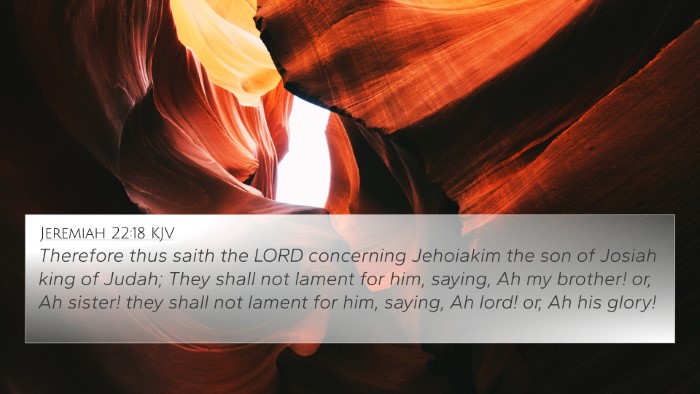Ezekiel 24:16 - Summary and Interpretation
Ezekiel 24:16 reads: "Son of man, behold, I take away from thee the desire of thine eyes with a stroke: yet neither shalt thou mourn nor weep, neither shall thy tears run down." This verse resonates deeply in the context of loss and divine command, presenting a rich ground for interpretation and analysis.
Overall Meaning
This verse contains profound implications concerning loss and obedience. The "desire of thine eyes" is often understood to refer to a loved one, likely Ezekiel's wife. The verse indicates that this beloved figure will be taken away by a divine stroke or judgment. Yet, in this moment of intense lamentation, God commands Ezekiel not to mourn. This reflects a pressing theme in the prophetic books: the often painful relationship between God’s people and their understanding of His will amid personal grief.
Thematic Connections
The sorrow expressed in Ezekiel 24:16 strikes at the heart of human experience, paralleling various biblical themes such as suffering, loss, and the call to fidelity under trial. Public domain commentaries reveal layered insights on these themes:
- Matthew Henry: Emphasizes the severity and necessity of God’s judgment, illustrating how God's directives may take precedence over personal emotions and desires.
- Albert Barnes: Points out the need for prophetic behavior to symbolize divine messages, interpreting Ezekiel's compliance as a demonstration of his commitment to God’s will even in the face of heart-wrenching loss.
- Adam Clarke: Notes that the command to refrain from mourning signifies a command to place spiritual above earthly ties, aligning with other biblical instances where allegiance to God is paramount.
Cross-References
In studying Ezekiel 24:16, several key biblical cross-references provide a more comprehensive understanding of the text:
- Hosea 1:2-3 - "When the LORD began to speak through Hosea, the LORD said to him, 'Go, take to yourself an adulterous wife and children of unfaithfulness...'" - Demonstrating God’s call for prophetic actions amidst personal strife.
- Jeremiah 16:5 - "For thus says the LORD: Do not enter the house of mourning, or go to lament or grieve for them..." - Reflecting a similar command regarding mourning and dealing with loss.
- Matthew 10:37 - "Anyone who loves their father or mother more than me is not worthy of me..." - Emphasizing the priority of one's relationship with God over familial ties.
- Luke 14:26 - "If anyone comes to me and does not hate father and mother, wife and children, brothers and sisters—yes, even their own life—such a person cannot be my disciple." - Illustrating the radical commitment required by God.
- Romans 8:18 - "I consider that our present sufferings are not worth comparing with the glory that will be revealed in us." - Connecting suffering in the present with hope for the future.
- Philippians 3:8 - "I consider everything a loss because of the surpassing worth of knowing Christ Jesus my Lord..." - Highlighting the theme of valuing spiritual connection over personal relationships.
- Revelation 21:4 - "He will wipe every tear from their eyes. There will be no more death or mourning or crying or pain..." - Offering a hope beyond grief that resonates with the loss depicted in Ezekiel.
Conclusion
The message in Ezekiel 24:16 invites readers to grapple with the complexities of divine intent versus human emotion. Understanding the thematic connections and cross-references can deepen the comprehension of how loss fits into the larger narrative of faith and obedience. Studying these connections can provide clarity on how scripture interprets emotional turmoil through faith, ultimately encouraging believers to align their hearts with God’s purpose, despite the challenges they may face.
Through a careful analysis of these connections, we can utilize a range of tools for bible cross-referencing to enhance our knowledge and understanding of scripture. Engage with these various themes in your personal study or sermon preparation to paint a vivid picture of God’s design in the midst of human experiences.
